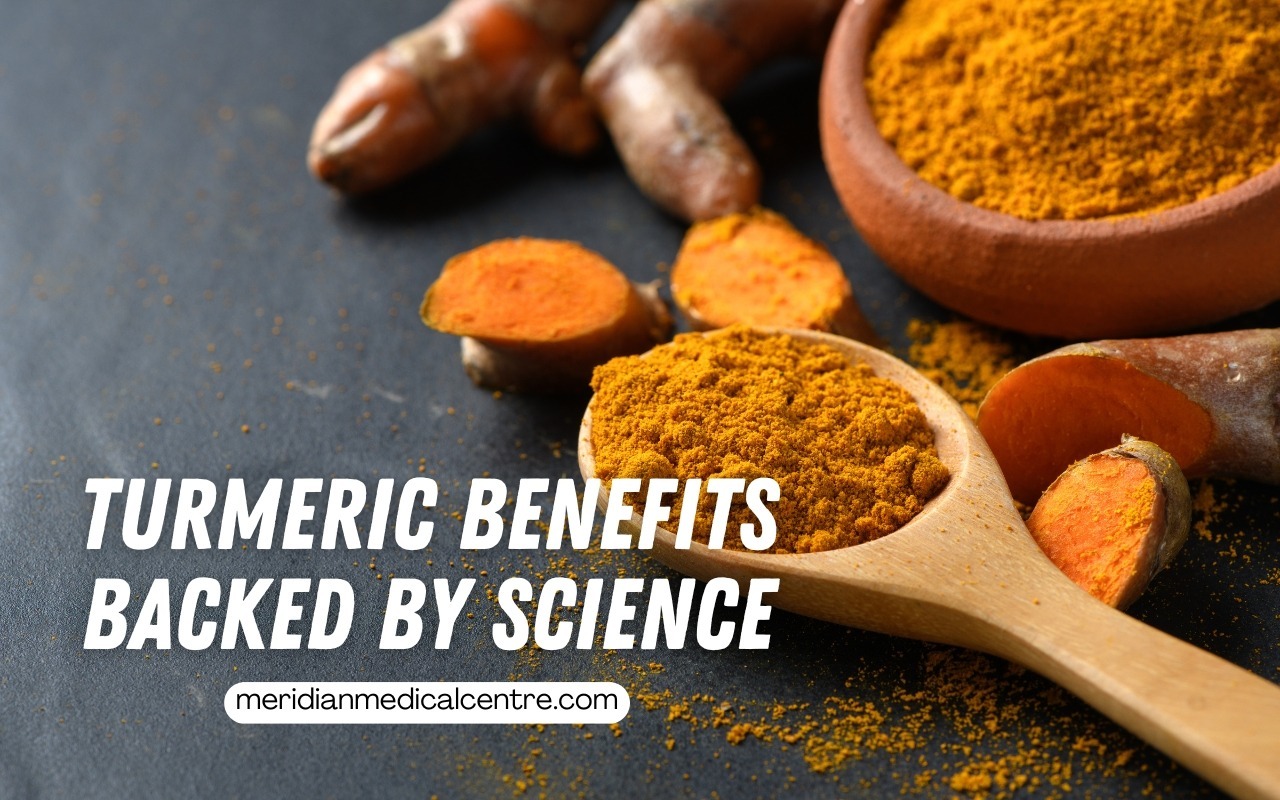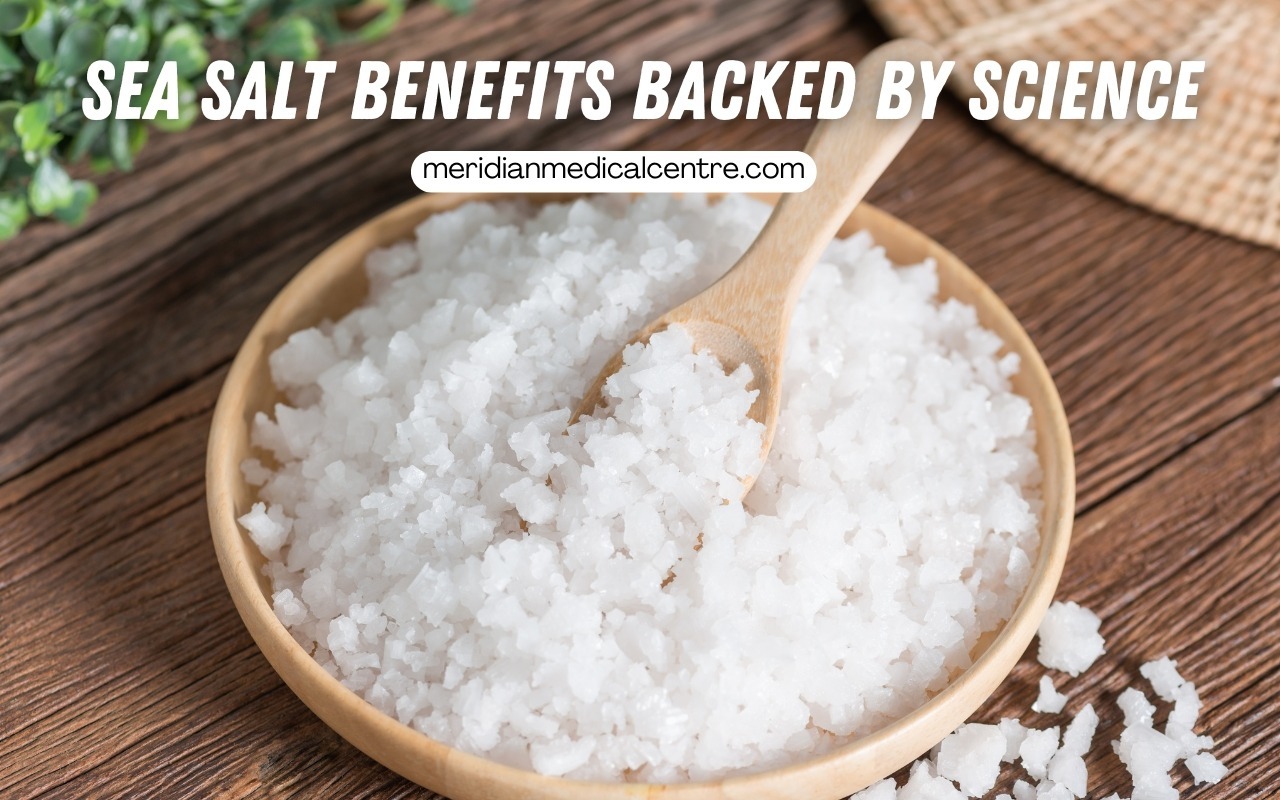
Meridian Medical Centre provides evidence-based, informative content on natural wellness approaches that complement clinical care. Our focus is on empowering individuals to make informed health choices, with content rooted in scientific research and professional expertise. While we recognize the role of holistic health solutions, we emphasize the importance of consulting healthcare professionals for personalized medical guidance. Our approach is ethical, transparent, and accessible, ensuring that readers receive trustworthy health information that integrates natural and clinical solutions for better health outcomes.
Understanding Turmeric and Its Bioactive Compounds
Turmeric (Curcuma longa) is widely recognized for its anti-inflammatory, antioxidant, and metabolic benefits. The primary bioactive compound, curcumin, has been extensively studied for its potential in chronic disease prevention, metabolic health, and immune modulation.
This article presents a scientific analysis of turmeric’s therapeutic potential, its mechanisms of action, and clinical applications based on the latest medical research.
Curcumin and Its Role in Anti-Inflammatory and Antioxidant Pathways
1. Anti-Inflammatory Effects and Mechanisms
Chronic inflammation is linked to cardiovascular disease, metabolic disorders, neurodegeneration, and autoimmune conditions. Curcumin modulates inflammatory pathways by:
- Inhibiting nuclear factor-kappa B (NF-κB), a key regulator of inflammatory gene expression.
- Suppressing pro-inflammatory cytokines, such as tumor necrosis factor-alpha (TNF-α) and interleukin-6 (IL-6).
- Reducing cyclooxygenase-2 (COX-2) and lipoxygenase (LOX) activity, which mediate inflammatory responses.
Clinical Evidence:
- A 2020 meta-analysis in the Journal of Clinical Medicine found that curcumin supplementation significantly reduced inflammation markers in patients with rheumatoid arthritis and inflammatory bowel disease.
- A 2018 randomized controlled trial in patients with osteoarthritis reported that curcumin supplementation reduced pain scores and improved joint function, comparable to ibuprofen.
2. Antioxidant Properties and Cellular Protection
Curcumin functions as a potent scavenger of reactive oxygen species (ROS), reducing oxidative stress, which is associated with cellular aging, neurodegeneration, and metabolic diseases.
Clinical Evidence:
- A 2021 study in Antioxidants found that curcumin enhanced endogenous antioxidant defenses by upregulating superoxide dismutase (SOD) and glutathione peroxidase (GPx).
- A 2019 review in Oxidative Medicine and Cellular Longevity suggested that curcumin’s antioxidant properties could reduce DNA damage and improve mitochondrial function.
Clinical Applications of Turmeric in Health Conditions
1. Digestive Health and Gastrointestinal Disorders
Curcumin has been evaluated for its role in gut health, bile production, and inflammatory bowel conditions.
Clinical Evidence:
- A 2019 study in Phytotherapy Research found that curcumin improved gut microbiome diversity and reduced intestinal permeability in patients with irritable bowel syndrome (IBS).
- A 2020 randomized trial in ulcerative colitis patients demonstrated that curcumin supplementation, combined with standard therapy, significantly lowered relapse rates.
2. Osteoarthritis and Joint Health
Turmeric has been explored as a natural intervention for osteoarthritis and inflammatory joint diseases.
Clinical Evidence:
- A 2018 systematic review in the Journal of Medicinal Food found that curcumin reduced osteoarthritis symptoms, improved mobility, and lowered dependency on NSAIDs.
- Compared to placebo, curcumin demonstrated statistically significant improvements in pain scores.
3. Cardiovascular Health and Lipid Regulation
Curcumin has been investigated for its cardioprotective properties, particularly its effects on lipid metabolism and arterial health.
Clinical Evidence:
- A 2017 study in Nutrition Reviews found that curcumin supplementation significantly reduced total cholesterol, LDL cholesterol, and triglycerides.
- A meta-analysis in Cardiovascular Pharmacology suggested that curcumin enhances nitric oxide (NO) production, improving vascular function and reducing hypertension risk.
4. Cancer Prevention and Cellular Protection
Curcumin’s antioxidant and anti-inflammatory mechanisms may contribute to cancer prevention by reducing oxidative stress and tumor proliferation.
Clinical Evidence:
- A 2021 study in Molecular Oncology found that curcumin suppressed tumor growth in preclinical models of breast, prostate, and colon cancer.
- While promising, human trials are needed to establish definitive clinical applications.
5. Neurodegenerative Disease Prevention
Turmeric has gained attention for its role in cognitive function, neuroinflammation, and neurodegenerative diseases.
Clinical Evidence:
- A 2022 study in the Journal of Alzheimer’s Disease found that curcumin supplementation improved cognitive performance and reduced amyloid plaque accumulation in early-stage Alzheimer’s patients.
- A 2020 meta-analysis concluded that curcumin enhances neuroplasticity and may have protective effects against Parkinson’s disease.
Turmeric Supplementation and Bioavailability
Despite its therapeutic potential, curcumin has low bioavailability due to poor absorption and rapid metabolism.
Optimizing Curcumin Absorption
- Curcumin with Black Pepper (Piperine): Enhances absorption by 2,000%.
- Liposomal Curcumin: Improves cellular uptake and bioavailability.
- Curcumin with Bromelain: Increases anti-inflammatory effects and absorption.
Safety Considerations and Drug Interactions
1. Gastrointestinal Effects and Precautions
- Curcumin may increase stomach acid production, potentially worsening acid reflux or ulcers.
- High doses of turmeric supplements may cause gastrointestinal discomfort.
2. Interaction with Medications
- Blood thinners (e.g., warfarin, aspirin): May increase bleeding risk.
- Diabetes medications: Can lower blood sugar excessively.
- Acid-reducing drugs: May counteract effects of proton pump inhibitors (PPIs).
Final Thoughts: A Research-Backed Approach to Turmeric’s Benefits
Turmeric is a scientifically supported botanical with anti-inflammatory, antioxidant, and metabolic benefits. While curcumin has demonstrated efficacy in digestive health, joint function, cardiovascular protection, and neuroprotection, bioavailability remains a key consideration.
At Meridian Medical Centre, we emphasize evidence-based wellness strategies. Individuals considering turmeric supplementation should consult a healthcare provider to ensure appropriate dosage, safety, and integration into their health regimen.
For personalized dietary recommendations and natural health strategies, schedule a consultation with one of our medical professionals to explore the best approach tailored to your health goals.

